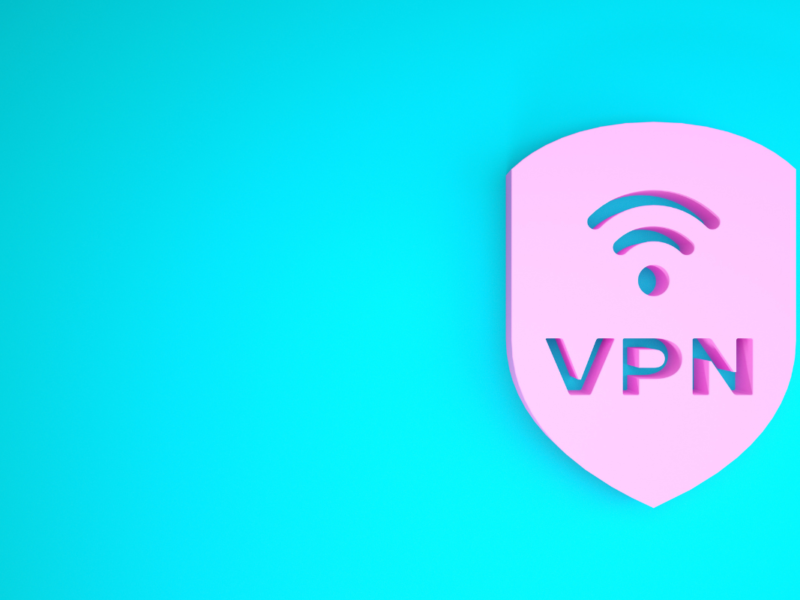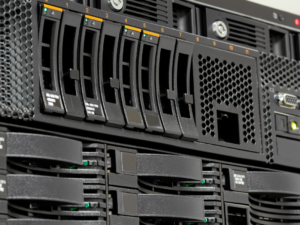Demystifying VPN protocols is essential to understand what makes this technology so important in today’s computing needs. There are a plethora of options available and this makes it confusing to select which fits best.
Look no further – this comprehensive guide is here to assist you in navigating the complex landscape of VPN protocols with ease and confidence. From enhancing speed to fortifying security and beyond, we will shed light on the intricacies of various VPN protocols, equipping you with the knowledge necessary to make an informed decision.
In this beginner’s guide, we will not only unravel the mysteries surrounding different VPN protocols, but also explore their advantages and potential pitfalls. With an emphasis on simplicity and clarity, we aim to provide a comprehensive overview of each protocol’s functionality, allowing you to identify the most suitable option for your specific needs.
Stay tuned for a journey through the world of VPN protocols, where you’ll gain a deeper understanding of their role in maintaining a secure and efficient online presence.
Understanding VPN Protocols
Before diving into the world of VPN protocols, it’s essential to have a clear understanding of what they are and why they are important. A set of rules and processes determine how data is transmitted and encrypted over a virtual private network through VPN protocols. They play a crucial role in ensuring the security and privacy of your online activities.
Definition and Importance
Definition: VPN protocols are the foundation of secure communication over the internet. They establish the rules for encrypting and decrypting data, as well as for authenticating and establishing connections between devices.
The importance of VPN protocols cannot be overstated, as they are the key to safeguarding your sensitive information from unauthorized access and interception.
How VPN Protocols Determine Connectivity

Protocols: Different VPN protocols offer varying levels of security, speed, and compatibility. They determine how devices connect to the VPN server and how data is transmitted between them. Choosing the right VPN protocol is critical in ensuring a secure and efficient connection to the VPN server.
Importance: The choice of VPN protocol can significantly impact the speed, security, and compatibility of your VPN connection. It’s essential to consider the specific needs and priorities of your organization or personal use when selecting a VPN protocol.
Demystifying VPN Protocols: The Most Common VPN Protocols Explained
Any time you use a VPN, your data is being routed through a particular protocol. Understanding the different VPN protocols can help you make informed decisions about which one is best for your needs. Here, we’ll break down the most common VPN protocols and explain their strengths and weaknesses.
PPTP: Speed Over Security
With PPTP (Point-to-Point Tunneling Protocol), you’ll experience fast connection speeds due to its minimal encryption. However, this comes at a cost as its security is considered to be weak compared to other protocols.
PPTP may be suitable for streaming and other activities where speed is a priority, but it’s important to consider the potential risks.
OpenVPN: Balancing Speed and Security
On the other hand, many widely regard OpenVPN as one of the most secure VPN protocols available, while it still offers good speeds. The community continually scrutinizes and improves it since it’s an open-source protocol.
One of its advantages is that it can bypass firewalls and other restrictions, making it a versatile choice for a variety of use cases.
Any organization concerned with security and privacy should consider using OpenVPN for their VPN connections.
L2TP/IPSec: A Widespread Standard
Speed and security are both important factors with L2TP/IPSec, as this protocol provides strong encryption and good speeds for a wide range of applications. For instance, most operating systems support and make it compatible with mobile devices.
For organizations that prioritize security and usability, L2TP/IPSec is a popular choice for their VPN deployments.
SSTP: Overcoming Firewalls and Blocks
Designed to overcome firewalls and blocks while maintaining strong encryption, SSTP makes speed and security go hand-in-hand with this protocol. SSTP uses SSL/TLS for security, making it a reliable choice for bypassing censorship or accessing geo-restricted content.
Overcome network restrictions and maintain strong security with SSTP for your VPN connections.
IKEv2/IPSec: Mobility and Agility
Optimized for mobile devices and seamless connectivity, IKEv2/IPSec provides a key benefit of speed. With its ability to quickly reestablish a connection after a network change, this protocol is ideal for users on the go. Its robust security features make it a solid choice for organizations prioritizing performance and protection in their VPN setup.
Widespread support and reliable security make IKEv2/IPSec a compelling choice for VPN users and organizations alike.
Advanced VPN Protocols and Technology
For those looking to delve deeper into the world of VPN protocols and technology, there are a number of advanced options to consider. Below, we break down two of the leading protocols in terms of speed, security, and overall performance.
- WireGuard
- SoftEther
WireGuard: The Future of VPNs?
WireGuard is a revolutionary VPN protocol that has been gaining attention for its speed, simplicity, and modern approach to encryption. Its lean code base and innovative use of cryptographic tools make it a promising candidate for the future of VPN technology.
With its potential to provide faster and more secure connections, WireGuard is worth keeping an eye on for those seeking the best in VPN performance.
SoftEther: Versatility and Performance
SoftEther is a versatile VPN protocol that offers a wide range of features and capabilities. It supports various VPN protocols including SSL-VPN, L2TP, OpenVPN, and more, providing users with the flexibility to choose the most suitable protocol for their needs.
SoftEther also boasts high performance and reliability, making it a top choice for those who require stable and efficient VPN connections.
Its versatility and ability to handle diverse networking scenarios make the SoftEther protocol well-regarded, rendering it an excellent option for businesses and individuals alike.
Encryption and Security Measures

When it comes to encryption and security, not all VPN protocols are created equal. Understanding the differences between various encryption methods and security measures is crucial in choosing the right VPN protocol for your needs.
Understanding Encryption Strength
Security in VPN protocols is heavily reliant on encryption strength. Different protocols offer different levels of encryption, which are measured in bits. The higher the number of bits, the stronger the encryption and the more secure your connection.
For example, protocols like OpenVPN offer up to 256-bit encryption, while PPTP only provides 128-bit encryption. It’s important to choose a protocol with strong encryption to ensure the safety and privacy of your online activities.
Furthermore, some protocols may offer the option to adjust encryption strength based on your specific security needs. This flexibility allows you to find the right balance between security and speed for your VPN connection.
The Role of Authentication in VPNs
Strength in VPN protocols also comes from the authentication process. Authentication verifies the identity of each party involved in the VPN connection.
Users typically do this through the use of digital certificates or pre-shared keys, ensuring that only authorized users can access the VPN. Strong authentication adds an extra layer of security to your connection, making it more resistant to unauthorized access.
The authentication process plays a critical role in maintaining the integrity of the VPN connection, providing peace of mind for users concerned about the security of their online data.
VPN Speed Factors and Performance
After choosing the right VPN protocol for your needs, the next consideration is the speed and performance of your VPN connection. There are several factors that can impact the speed and performance of your VPN, including:
- Network latency
- Bandwidth limitations
- Server load
- VPN protocol used
This is where the importance of A Beginner’s Guide to Routers, Switches, and Firewalls comes into play, as the quality and configuration of your network hardware can significantly impact VPN performance.
Network Latency and VPNs
Network latency, especially when using a VPN, can significantly impact performance. The additional distance and hops between your device and the VPN server can result in increased latency, which can lead to slower response times and overall performance issues.
VPN users should consider selecting servers with lower latency to optimize their connection speeds.
Bandwidth and Server Load Considerations
Considerations for VPN bandwidth and server load are also crucial. The amount of bandwidth available and the load on the server can impact the speed and performance of your VPN connection. To ensure optimal performance, it is important to choose servers with sufficient bandwidth and low load, especially during peak usage times.
To maximize the speed and performance of your VPN connection, it’s essential to consider the impact of network latency, bandwidth limitations, and server load. Selecting the right VPN protocol and choosing servers strategically can help mitigate these factors and ensure a smooth and efficient VPN experience for users.
Choosing the Right VPN Protocol
Unlike The 2 Best VPN Services of 2024 | Reviews by Wirecutter, that focus on the overall performance of VPN providers, it’s essential to consider which VPN protocol is best suited for your specific needs.
There are several VPN protocols available, each with its own set of strengths and weaknesses. Understanding the different protocols will help you make an informed decision when selecting the right VPN for your requirements.
Use Case Scenarios: Personal vs. Business
The use case for VPNs varies between personal and business needs. For personal use, individuals typically require a VPN to protect their online privacy and access geo-restricted content.
On the other hand, for businesses, the focus is often on securing sensitive data, ensuring secure remote access for employees, and maintaining an enhanced level of security for company networks.
Compatibility with Devices and Operating Systems
With the increasing number of devices and operating systems available in the market today, it’s crucial for VPNs to be compatible with a wide range of platforms.
For instance, a VPN that supports Windows, macOS, iOS, Android, and Linux ensures seamless protection across all your devices, providing flexibility and convenience for all users.
Conclusion
Hence, understanding the intricacies of VPN protocols is crucial for anyone seeking to enhance their online security and privacy. By grasping the fundamental differences between protocols such as OpenVPN, L2TP/IPsec, and IKEv2/IPsec, users can make informed decisions about which protocol best suits their needs.
Additionally, being aware of the trade-offs between speed and security enables users to optimize their VPN experience. Ultimately, demystifying VPN protocols empowers users to take control of their online privacy and security, ensuring they can browse the internet with peace of mind.
In conclusion, demystifying VPN protocols is an essential step for all internet users looking to enhance their online security and privacy. With a solid understanding of different protocols and their trade-offs, users can make informed decisions about which protocol best suits their individual needs and preferences.
By taking control of their VPN protocols, users can enjoy the benefits of enhanced security and privacy without sacrificing speed or performance.
FAQ
Q: What is a VPN protocol?
A: A set of rules that determines how data is transmitted between devices in a virtual private network is called a VPN protocol. It governs the encryption, authentication, and data integrity processes that ensure secure communication.
Q: Which VPN protocol is the fastest?
A: In general, their speed is known for the IKEv2/IPSec and L2TP/IPSec protocols. These protocols are designed for high-speed connections and are often preferred for streaming and gaming.
Q: What is the most secure VPN protocol?
A: The OpenVPN protocol is widely considered the most secure due to its strong encryption and open-source nature. It has a reputation for being highly resistant to attacks and vulnerabilities.
Q: Can I switch between VPN protocols?
A: Many VPN services allow users to switch between different protocols within their applications or settings. However, it’s important to note that not all devices and operating systems support all VPN protocols.
Q: What are the key factors to consider when choosing a VPN protocol?
A: When selecting a VPN protocol, it’s crucial to consider factors such as speed, security, device compatibility, and intended use (e.g., streaming, torrenting, browsing). It’s also important to stay informed about any potential vulnerabilities or updates related to the chosen protocol.







